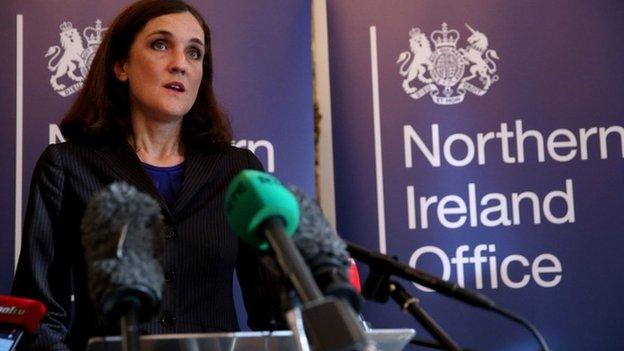Stormont crisis: Theresa Villiers says talks process 'focused and productive'
- Published
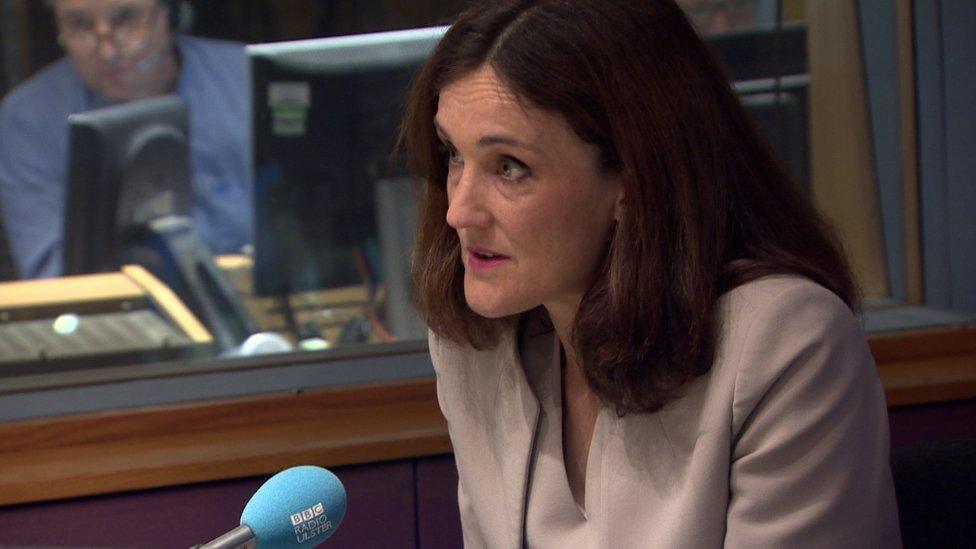
Theresa Villiers said all five parties involved in the talks had "committed themselves" to an "intensive process"
Northern Ireland's main political parties had a day of "focused and productive" talks in a bid to solve the ongoing crisis at Stormont, the Northern Ireland secretary has said.
Round-table discussions have begun over the issues of over paramilitary activity and welfare reform.
Theresa Villiers said all parties had "committed themselves" to the talks.
The political crisis was sparked by the murder of ex-IRA man Kevin McGuigan Sr last month.
Northern Ireland's police chief said members of the IRA had been involved in the killing and that the organisation was still in existence.
Martin McGuinness said parties must 'put up or shut up' in terms of linking Sinn Féin with criminality.
The resulting row led the Ulster Unionist Party (UUP) to withdraw from Northern Ireland's ruling executive.
Democratic Unionist Party (DUP) leader Peter Robinson later stepped aside as first minister, with three of his party's ministers also resigning.
Proposals
The two parties committed last week to joining cross-party talks after the government commissioned an independent assessment of paramilitary organisations in Northern Ireland.
Unionists said the issue of continued paramilitary activity was crucial to their involvement in the discussions.
Mr Robinson, who joined Monday's talks after being discharged from hospital, said his party had six key proposals to bring to the table.
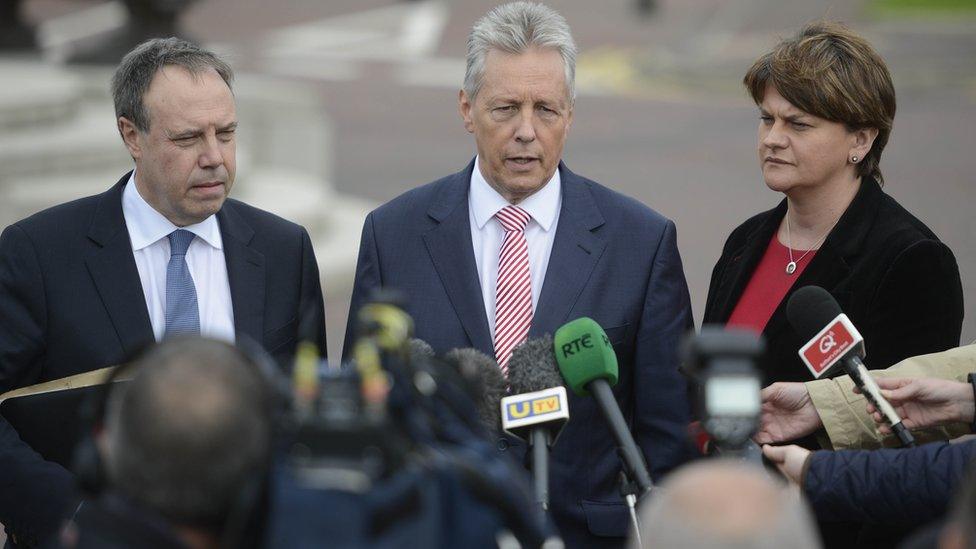
Peter Robinson (centre) said his party had six key proposals to bring to the cross-party discussions
One of those would be the establishment of a "permanent" structure to examine paramilitary activity.
He said that body would be able to impose sanctions "to anybody who breaches" its terms.
Ms Villiers said Tuesday's talks would concentrate on finance and welfare issues.
"Implementing these aspects of the Stormont House Agreement is essential if the executive is to have a workable and sustainable budget," she added.
Mischievous
During a break from Monday's talks, Sinn Féin's Martin McGuinness said anyone with evidence linking his party to criminality should go the police.
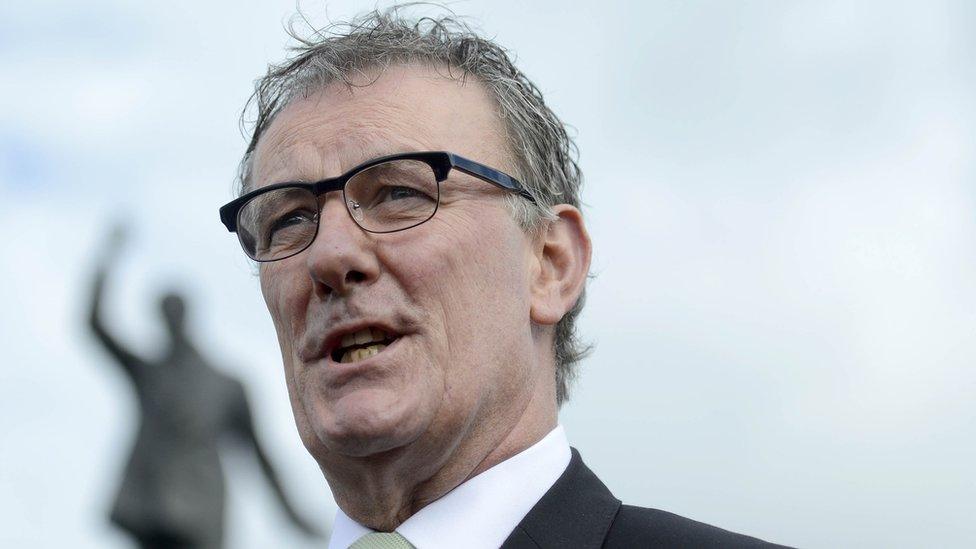
Mike Nesbitt said the UUP would bring "imaginative" solutions to the talks
In a strongly worded message, the deputy first minister said: "It is now time to put up or shut up."
He accused some of the other parties of being "mischievous" by suggesting Sinn Féin was involved in criminality.
"If anybody has any information whatsoever about any party in government being involved in criminality, then they should put it up on the table and, more importantly, they should put it to the [Police Service of Northern Ireland]," he said.

The story of Stormont's crisis
Stormont's political upheaval was sparked by allegations that Provisional IRA members were involved in the murder of Kevin McGuigan Sr
Row erupted after a senior Sinn Féin member was arrested as part of the inquiry into Mr McGuigan's death. He was later released without charge
Northern Ireland First Minister Peter Robinson stepped aside; all but one of his Democratic Unionist Party ministers resigned
Finance Minister Arlene Foster is now acting first minister

UUP leader Mike Nesbitt said his party entered the talks "with some concerns, not least about whether there will be a two-party carve-up in a parallel process".
But he added his party would offer "imaginative work around some of the blockages".
Nominated
Social Democratic and Labour Party leader Alasdair McDonnell said dealing with the past was a priority.
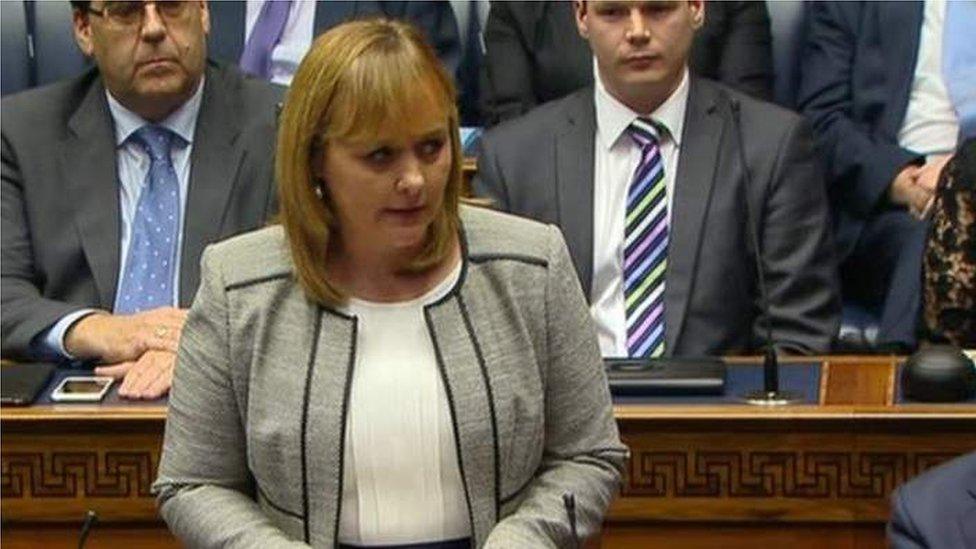
Michelle McIlveen resigned shortly after she was appointed as the new regional development minister
"The past must be dealt with and victims and survivors must be dealt with honestly and honourably," he said.
Alliance Party leader David Ford said a deal had to be made.
"We need to end the culture of insidious paramilitarism and to reform the institutions so that we don't keep having a crisis year after year," he said.
At the Northern Ireland Assembly on Monday, Mr Robinson nominated Michelle McIlveen to take over as the minister for regional development, replacing the UUP's Danny Kennedy who resigned in August.
But she later resigned from the position, in line with the DUP's "no business as usual" protest action.
- Published18 September 2015
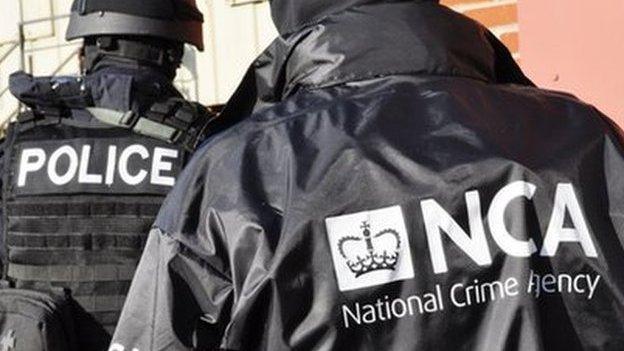
- Published18 September 2015
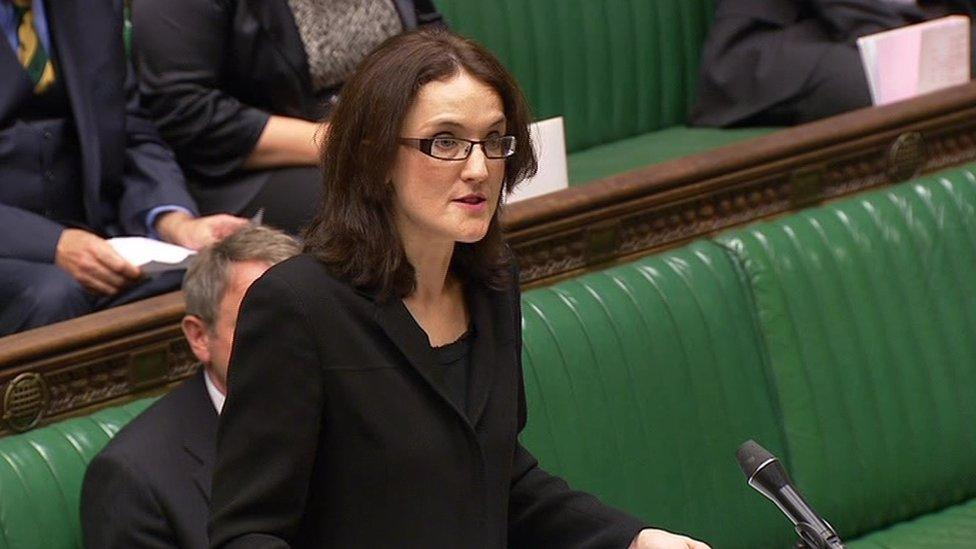
- Published21 September 2015
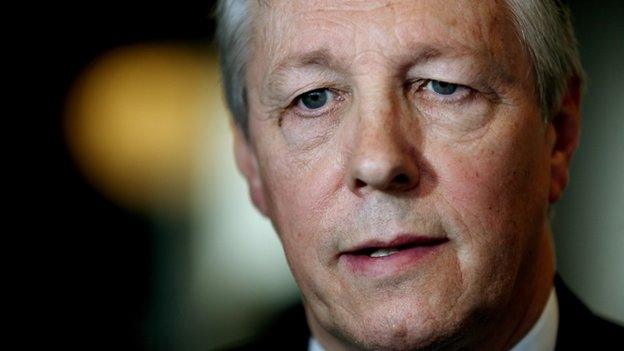
- Published10 September 2015
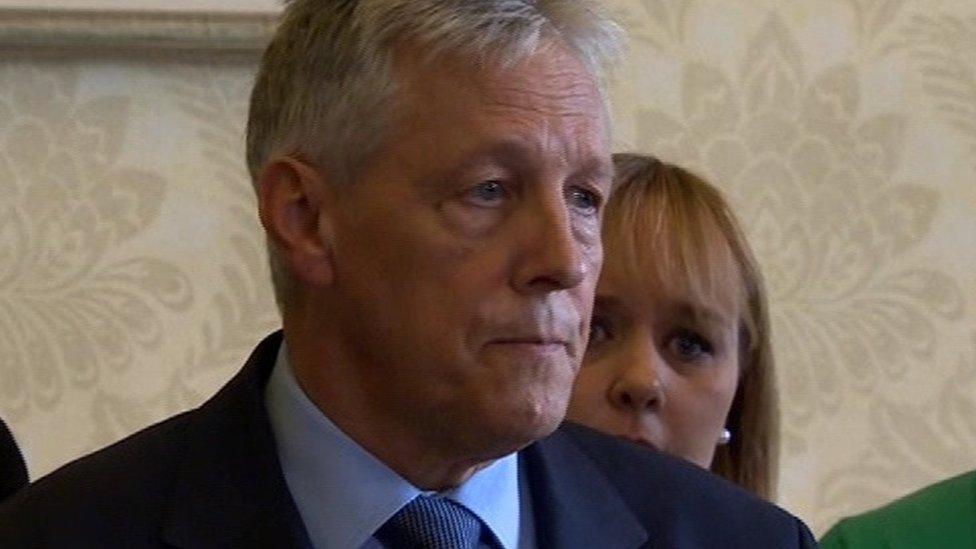
- Published26 May 2015
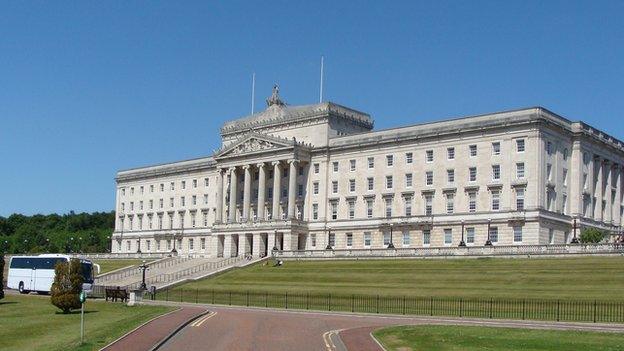
- Published21 September 2015
